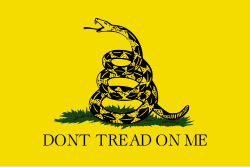US congressional caucus
Second Amendment Caucus | |
|---|---|
| Co-Chairs | Thomas Massie (KY-4) Lauren Boebert (CO-4) |
| Founded | December 8, 2016;9 years ago (2016-12-08) |
| Ideology | Second Amendment rights advocacy |
| National affiliation | Republican Party |
| Colors | Red |
| Seats in the House Republican Caucus | 15 / 220 |
| Seats in the House | 15 / 435 |
The Second Amendment Caucus, also known as the House Second Amendment Caucus, is a congressional caucus consisting of conservative and libertarian Republican members of the United States House of Representatives who support Second Amendment rights. [1] It was formed in 2016 to "promote a pro-gun agenda" according to founding chairman Thomas Massie. [2]


